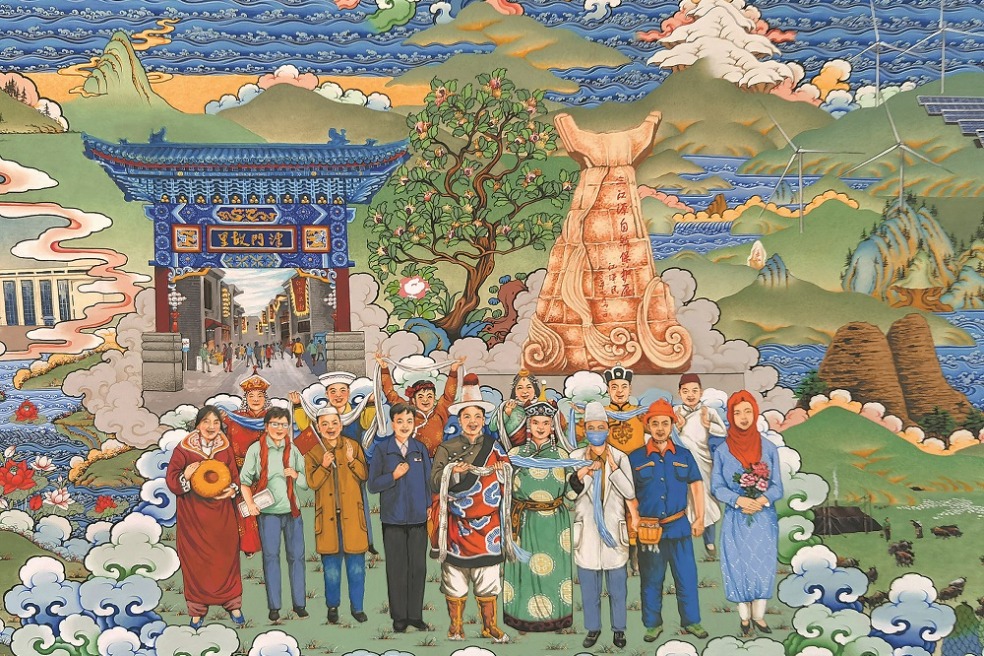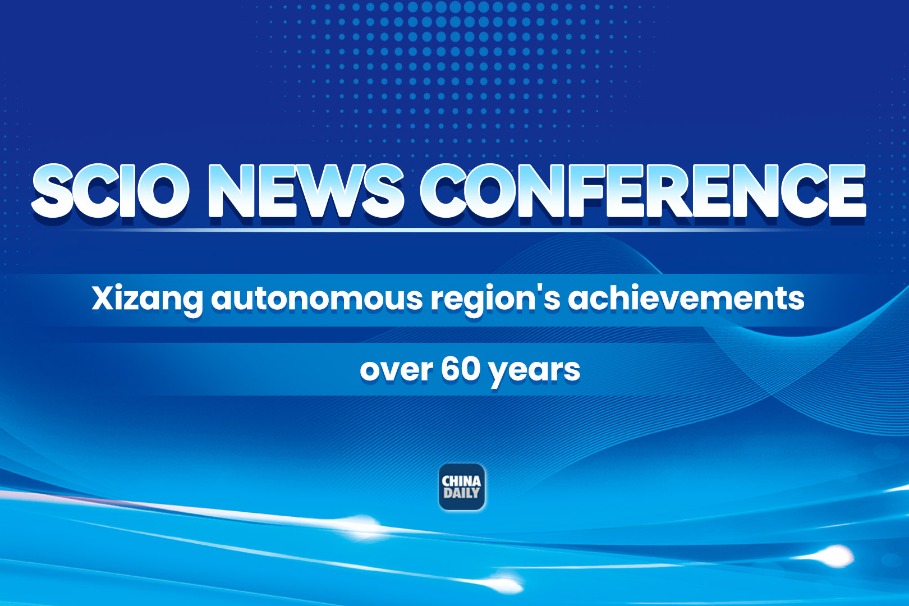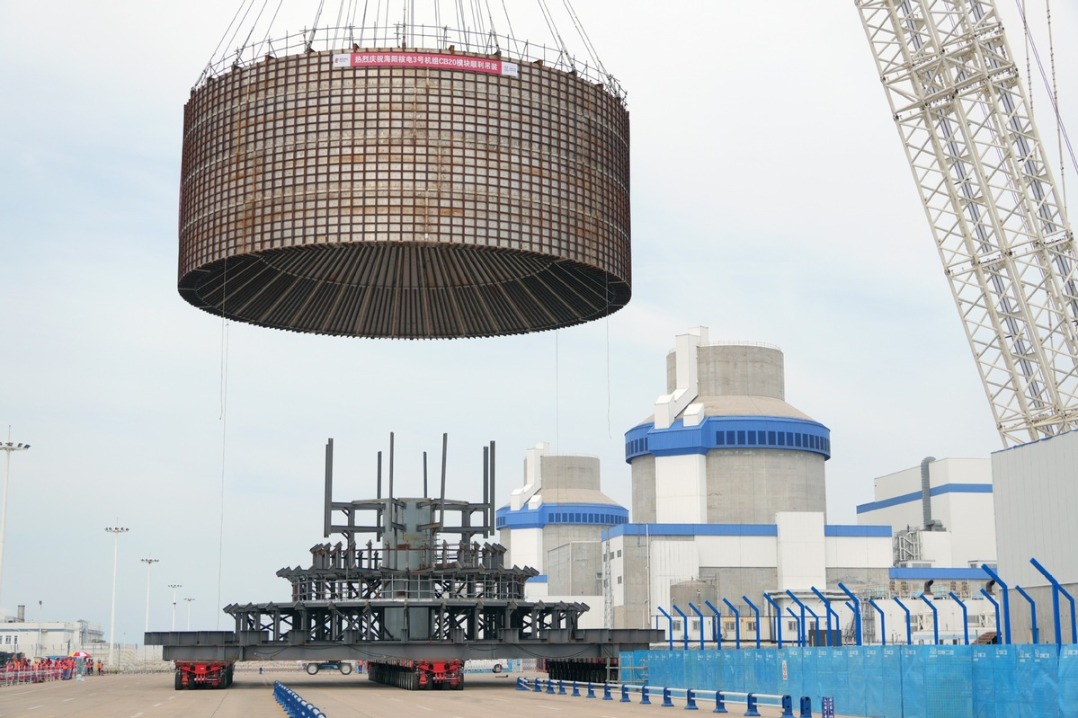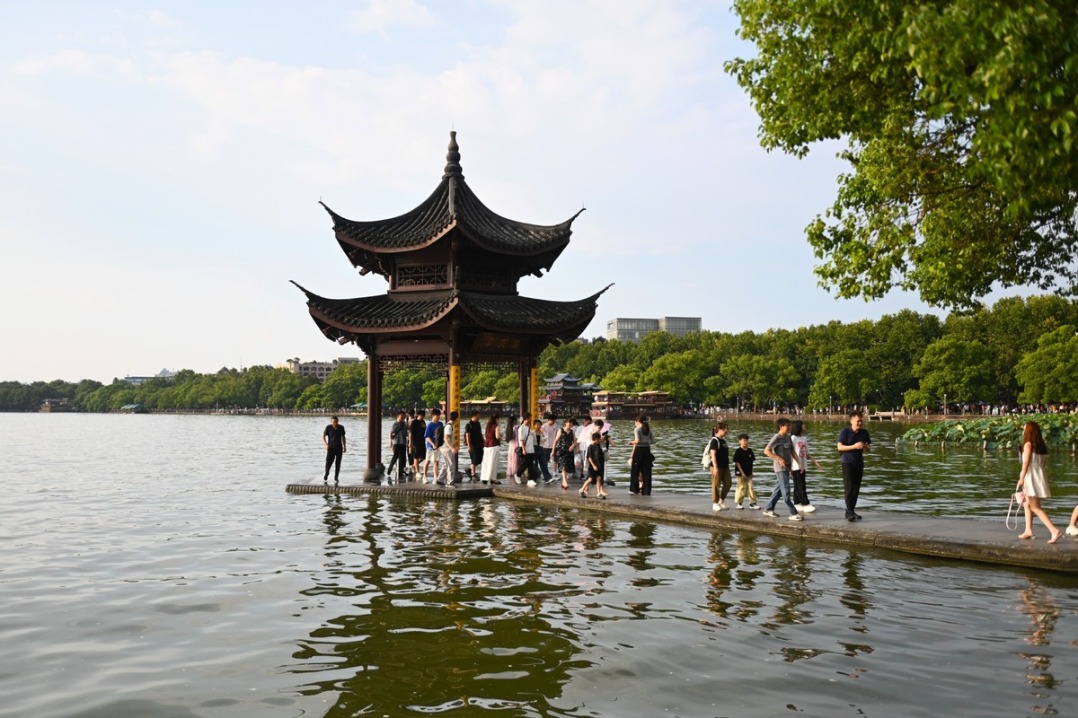Book draws out Brazil's clean water project
China expertise helps community enjoy access to vital resource of life, Wang Qian reports.

At the libraries of 10 public schools in Brazil, a new book that examines how a desalination project enhances local life is hugely popular among students and their parents.
Donated by the project's operator, State Grid Brazil Power Participations, the bilingual book in Chinese and Portuguese consists of three stories each narrated from the perspective of three villagers from different generations, sharing the benefits and changes brought by the project.
Inspired by the true stories during Jin Xiaoyu's journey last year to Joao Camara, a municipality in Rio Grande do Norte in northeast Brazil, the 40-year-old author explores the friendship between China and Brazil behind the charity project.
The desalination plant can provide, on average, 80 metric tons of purified water daily to local communities through the 5,000 kilometers of water transmission pipes.
"I'm really touched by the project and its benefits and want to let more children from the two countries know about its meaning through these stories," Jin says, adding that the book series was released in August to mark the 50th anniversary of diplomatic relations between China and Brazil.
Following the text's completion, three Brazilian illustrators — Susan Chou, Vitor Rocha and Leticia Graciano — brought the narrative to life through their artwork. Despite their distinct styles, the vivid illustrations capture the exuberant Brazilian culture through vibrant colors.
"This work highlights the importance of access to clean water and symbolizes another chapter in the cooperation between Brazil and China. I was delighted to see how Jin's texts and the illustrations by Brazilian artists complemented each other, creating a cultural bridge that reinforces the unity around a common purpose: transforming lives through clean and safe water," Pedro Saad, CEO of Brazilian Art and Culture Production Company, says.
Bruna Schroeder, mother of Serena, 4, from Campinas, likes to read the books to her daughter.
"They deepened my understanding of the importance of this essential resource and the positive influence that desalination has brought to the community. It was powerful and eye-opening to read about the reality of those who live with limited water resources," the mother and social investment producer at Insituto CPFL says.
Before the project, more than 3,000 residents from about 800 households in a village in Joao Camara had difficulty gaining access to safe drinking water. Affected by the semi-arid climate, the local groundwater has a bitter taste due to high salt content and is not safe for drinking.
Under the community's arrangement, water was delivered in remote locations on certain days with people getting up early in the morning, pushing trolleys to the water delivery truck and waiting in line. It took about six hours to bring the water back.
When the workers from the State Grid Brazil heard about the water crisis after the company started manage CPFL Energia in 2017, they decided to carry out the public welfare project to desalinate the brackish water. In early 2021, the project was signed and confirmed with a total investment of 9.6 million yuan ($1.32 million) and began construction in August the next year.
Using made-in-China products, the project includes a smart water supply system equipped with containerized bitter and salty water desalination equipment.
It applies membrane reverse osmosis technology to purify groundwater.
On Dec 31, 2022, access to safe drinking water became a reality and people could turn on the taps at certain points in their community with clean water flowing for daily use.
In February last year, the project was officially handed over to the Rio Grande do Norte state government with local technical personnel trained by the State Grid in advance.
The project is undertaken in response to the Belt and Road Initiative, adhering to the concept of energy saving, environmental protection, innovation and smart integration.
"When I got there and talked with the people, I realized how difficult their life was due to the lack of access to safe water. The water issue had threatened the health and development of local communities for a long time," Jin says, adding that she felt how welcoming the locals were to Chinese people.
"It is the true and heartwarming friendship that has been naturally built between the people from China and Brazil, which touches my heart," she says, adding that the emotional bonds she felt are also what she tries to convey in her stories.
In the first story, the parents of a baby girl named Maia are looking forward to the water desalination project that can guarantee safe, clean water for their newborn.
In the second, Rosa, a girl, wants to grow yellow daisies in her front yard but has always failed because of the poor water quality.
Now, she can grow plants with the purified water brought by the project.
In the third, Eduardo, 56, applies to be bricklayer at the water project site because he hopes that his grandchildren can get safe drinking water from the tap.
"The writer delicately depicts heartwarming stories for children, which are not only full of childlike interest but also truthfully document the public welfare project of saltwater desalination implemented by the State Grid. As 'salty water' turns into 'sweet water', the project has improved the daily lives of every family in the village, infusing the community with a continuous flow of hope and vitality," Renato Povia from CPFL Energia says.
Chinese companies, like the State Grid, have actively participated in the energy infrastructure investment and construction in Brazil to better serve the sustainable economic development of the country and contribute more to the bilateral cooperation, cultural exchanges and people-to-people communication.
For Jin, there are more stories to explore and she hopes that in the near future, she will return to the village and hand the book set over to villagers face to face.



Today's Top News
- Rise of macro-regions and dollar's decline
- Training helps to empower Global South
- Country to cut costs of preschool education
- Pakistani minister hails high-tech ties with China
- China-US trade ties key for world economy
- Prospering Xizang sees surge in overseas visitors






























